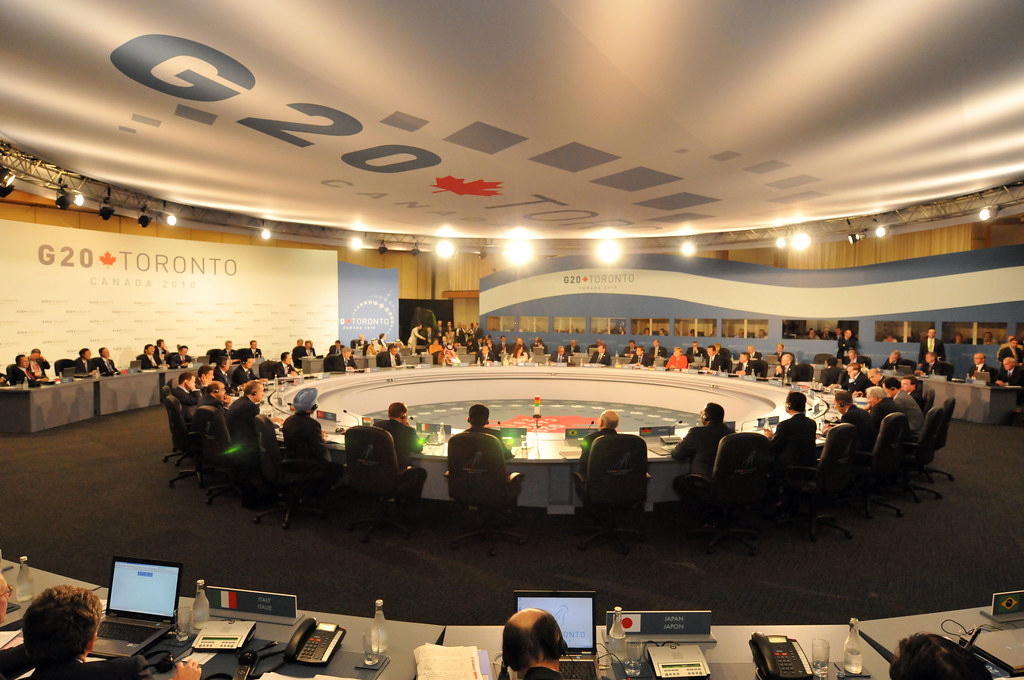June 14, 2011
The wake-up call came as a bit of a shock. Ernesto Zedillo, the highly regarded former president of Mexico and director of the Yale Center for the Study of Globalization, was discussing the record of international institutions and the powerful countries that run them. On their response to unprecedented international cooperation and coordination challenges, he was in no mood to mince words.
“I would say that the balance in terms of concrete achievements is not only discouraging but frightening,” he told the audience of some 200 development policy experts and practitioners gathered at Washington’s exquisite St. Regis Hotel for the CGD@10 Prosperity Policy Breakfast marking the Center’s 10th Anniversary.Speaking on a panel organized by CGD president Nancy Birdsall on international financial institutions and global public goods, Zedillo said that the establishment of the G-20 as the steering group for the global economy was “an excellent idea” but that the results so far had fallen well short of what was needed to address global problems. “It a disaster. It’s a joke. It’s not a serious exercise,” he said.Among the failures of international cooperation that Zedillo listed: Kofi Annan’s attempt to reform and strengthen the United Nations; international efforts to address climate change; and the failure to conclude the Doha Round of trade talks, launched in 2001 with a focus on trade and development, now dead in all but name.Recalling the Brandt Commission, which in two landmark reports in the early 1980s recommended establishing new mechanisms for international cooperation, Zedillo said that such a need was greater now than ever before.“Not only do we have these complexities, more intense and extensive interdependence, but we are going through an unprecedented process of rebalancing in the global economy and global geopolitics,” Zedillo said.Other panelists didn’t take such a dim view.“The transformation of the world economy is really amazing,” said Kemal Dervi?, the former head of the United Nations Development Programme, vice president of the Brookings Institution, and author of a CGD book, A Better Globalization.Starting in the 1990s, Dervi? noted, many developing countries have achieved high, sustained growth rates, closing the income gap between themselves and the rich countries. “For the last 20 years roughly we really have a process of convergence that is accelerating,” he said.Antoinette Sayeh, director of the African Department at the IMF and former finance minister of Liberia, pointed to high, sustained growth in many African countries, reporting that the region is expected to grow at about 5.5 percent this year.“The track record is already there in many sub-Saharan African countries, demonstrating that they have moved to a path of growth that can be sustained,” she said. The IMF, she added, is helping, in part by assisting the region in coping with shocks arising in other parts of the world.James Wolfensohn, the former president of the World Bank, initially split the difference, diplomatically contrasting the positive outlook of Dervi? and Sayah with Zedillo’s dramatic J'accuse! In the end, however, he came down in favor of the glass-half-empty view.“My years as president of the World Bank led me to conclude that there was a lot of rhetoric on the part of the rich countries related to how there was an increase in the development figures, usually put together with some lack of consistency,” he said.“I would agree with Ernesto that we are still left with a set of serious issues that relate to the poorest countries,” he added.Birdsall has consistently argued that international institutions and the multilateral financial institutions in particular, must become much more effective at addressing cross-border problems, providing global public goods and minimizing so-called global public bads.In her opening remarks she said how much the world has changed since CGD was created a decade ago.At that time, she saw CGD’s mission in terms of improving the policies and practices of the rich countries and the international institutions, to make these more supportive of development, she said.The dramatic rise of the big emerging economies, which is reflected in emergence of the G-20 as the world’s steering group for the global economy, shows that the world can no longer be neatly divided into “rich” and “developing” countries, she said. This is challenging the legitimacy of the international financial institutions, which in turn makes it harder for them to address global issues, even as interconnectedness has grown and shared problems are more urgent and important than ever before.Unfortunately, the panel ran out of time before it could address the issue of how the international financial institutions can become more effective at providing global public goods. For ideas on that, see CGD’s extensive work on the IFIs and to see how we have been quietly revising our mission statement in response to a changing world, go here. What do you think?Disclaimer
CGD blog posts reflect the views of the authors, drawing on prior research and experience in their areas of expertise. CGD is a nonpartisan, independent organization and does not take institutional positions.





